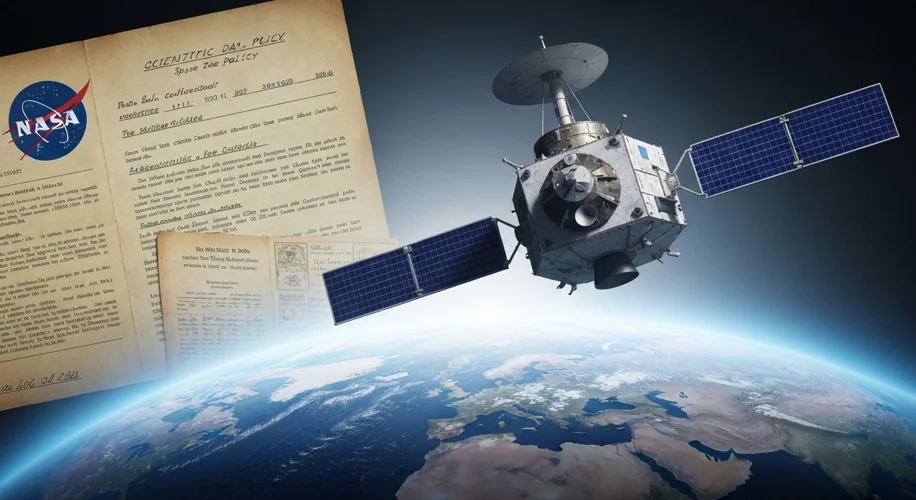It’s easy to feel a sense of unease when news breaks about governmental decisions impacting scientific endeavors. Today, August 6, 2025, reports suggest the White House has ordered NASA to deliberately decommission two satellites crucial for monitoring climate change. This event, while specific to our current time, echoes a long history where science and policy have often found themselves in a delicate, sometimes strained, relationship.
My work as an archivist has given me a front-row seat to the evolution of technology and its intertwined fate with societal decisions. History shows us that scientific research, especially when it touches upon environmental or societal concerns, can become a focal point for political and economic pressures. We’ve seen instances, not necessarily of deliberate destruction, but where funding shifts, policy changes, or differing interpretations of data have led to the curtailment or redirection of scientific projects.
Consider the early days of telecommunications. While not directly about climate monitoring, the development and deployment of technologies like the telegraph were heavily influenced by economic interests and government contracts. Decisions about where lines were laid, what standards were adopted, and even the speed at which innovation progressed were often dictated by factors beyond pure scientific advancement.
In the realm of environmental science, the politicization of findings isn’t new. Throughout the 20th century, as our understanding of environmental impacts grew, so did the debates surrounding scientific consensus. Projects relying on long-term data collection have, at various times, faced scrutiny or funding challenges when their findings became inconvenient for certain economic or political agendas. The very act of data collection, especially on a global scale, requires immense resources and long-term commitment, making it vulnerable to shifts in priorities.
Looking back at historical archives, one finds countless examples of how societal priorities, economic forces, and political climates have shaped, and sometimes reshaped, technological trajectories. The decision to decommission satellites, particularly those gathering vital environmental data, is a significant event. It prompts us to consider the historical patterns where scientific initiatives, despite their objective value, have been subject to the complexities of governance.
Understanding these historical precedents doesn’t necessarily offer immediate solutions, but it provides context. It reminds us that the journey of scientific discovery is rarely a straight line, often navigating through currents of human decision-making. The meticulous collection of data, whether by early astronomers charting the stars or modern satellites observing our planet, represents a dedication to understanding our world. The historical record shows us that preserving this continuity of observation is essential, even when faced with challenging policy landscapes.

